Southlands Methodist Trust Review of Activities
September 2023 – August 2024

September 2023 – August 2024
The Trustees of the Southlands Methodist Trust (SMT) are pleased to offer this account of the charity’s work during the course of the year 2023–24.
The charitable purposes of the Trust, its position within a collegiate university, and its reach into the broader learning life of the Church provide opportunities for creative and innovative interventions. Working so closely with institutions that share commitments to creating meaningful change and transforming lives, SMT activities have the potential for significant impact on learning and practice. This report contains examples of how the charity has advanced that mission.
Those of you wishing to find out more about our work are invited to visit us online at southlandsmethodisttrust.org.uk and susannawesleyfoundation.org, and to follow the social media accounts listed at the end of this report.
Thank you for taking an interest in the Southlands Methodist Trust. Please do contact the Trustees if you would like to work with us and help shape our mission in future years.

Dr Christopher Stephens Head of Southlands College

Canon Dr Jen Smith Chair of Trustees
Research and Knowledge Exchange (RKE)
Research and Knowledge Exchange at Roehampton
The Susanna Wesley Foundation
Enriching Community Life
Trustees in the period 2023-24:
Rev Dr Stan Brown
Rev Dr Joanne Cox-Darling
Mr Alan Davies
Mrs Barbara Easton (appointed Nov 2023)
Rev Geoffrey Farrar
Rev Dr Tim Macquiban, Chair (resigned Oct 2024)
Dr Clive Norris (resigned Dec 2024)
Rev Colin Smith
Canon Dr Jennifer Smith, Deputy Chair
Trustees as of January 2025:
Rev Dr Stan Brown
Mr Julian Christopher (appointed Oct 2024)
Rev Dr Joanne Cox-Darling
Mr Alan Davies, Deputy Chair
Mrs Barbara Easton
Rev Geoffrey Farrar
Mr Bala Gnanapragasam (appointed Oct 2024)
Rev Colin Smith
Canon Dr Jennifer Smith, Chair
Registered office:
Southlands College, 80 Roehampton Lane, London, SW15 5SL
Auditors:
haysmacintyre
Chartered Accountants
10 Queen Street Place London EC4R 1AG
Solicitors:
Pothecary Witham Weld
70 St George’s Square London SW1V 3RD
Bankers:
Methodist Central Finance Board
9 Bonhill Street London EC2A 4PE
HSBC
West End Corporate Banking Centre
70 Pall Mall London SW1Y 5EZ
The aims and purposes of the charity are:
1. as part of the work carried out through the Discipleship and Ministries Learning Network, to support in association with the college and university the development of Christian, and specifically Methodist, scholarship, research and innovation of local, national and global significance and to facilitate the public dissemination of such developments.
2. to enable members of the Methodist community and wider public in Britain and internationally to benefit from the academic and other expertise and experience within the college and the university and the facilities available within them.
3. to enrich the community life of the college and the work of its chaplaincy in ways that reflect its Methodist values and ethos.
4. to maintain and develop the relationship between the Methodist Church, the college and the university in the context of developing the contribution made to the work carried out through the Discipleship and Ministries Learning Network.
5. to further the wider charitable purposes of the Methodist Church through close working with the other persons and bodies responsible for the work carried out through the Discipleship and Ministries Learning Network.
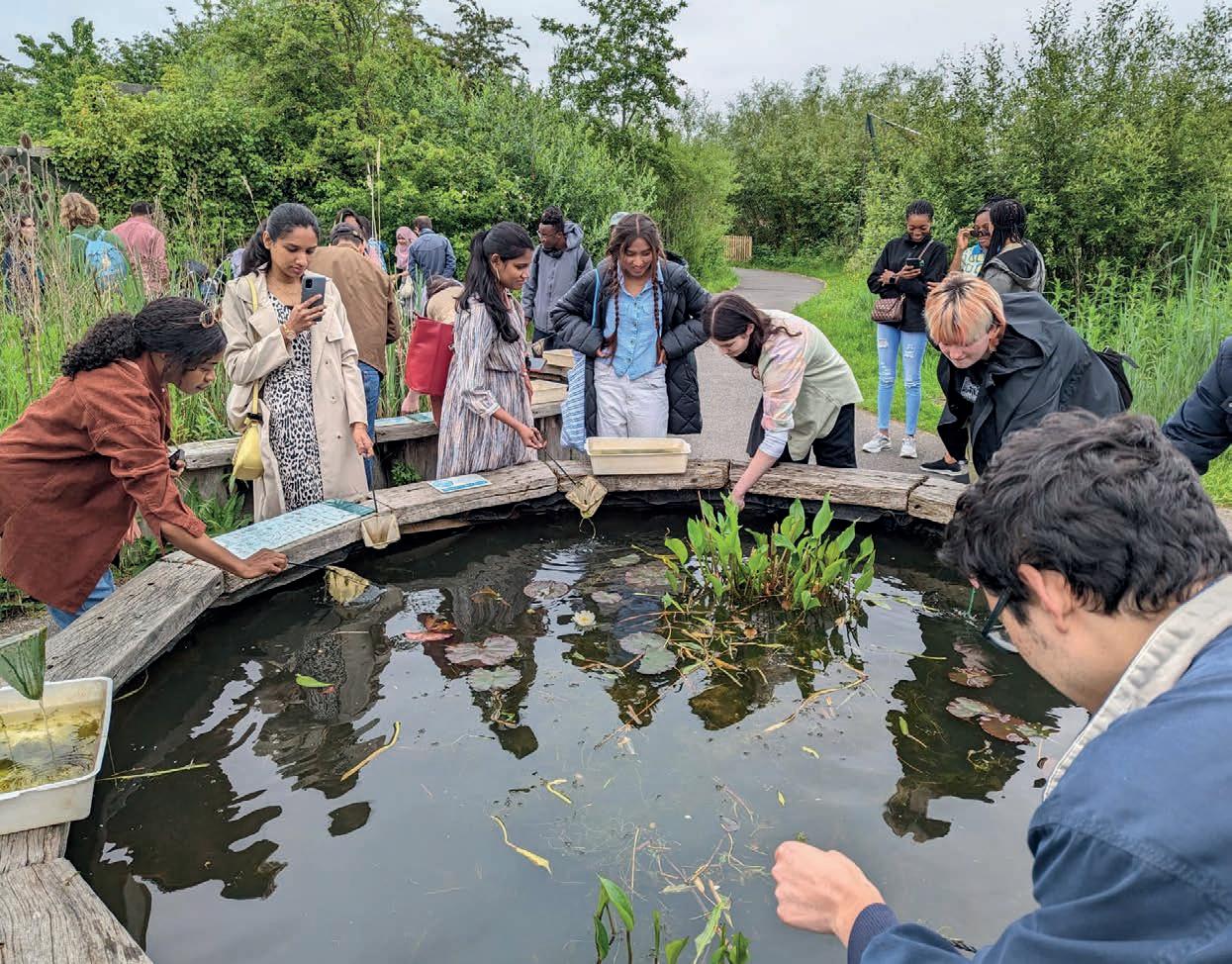
Southlands College, along with its sister colleges at Roehampton, provides the spaces for the academic work of the university to take place, and the physical context for that work. In addition to providing a site and facilities, Southlands and the SMT contribute to the advanced academic activities of the university through the resourcing of research and knowledge transfer.
The college, supported primarily by resources of the Southlands Methodist Trust, is home to the Faculty of Business and Law and nurtures an especially close relationship with its work, but the SMT’s research work spans Roehampton’s departments, specifically encouraging cross-disciplinary activity. The charity focuses especially on work which furthers the priorities of the Methodist Church in Britain in relation to justice, education and learning, human and environmental flourishing, and inclusion.
Many of the key themes of the University’s RKE Centres align with areas of interest in the mission of the Methodist Church, and throughout 2023–24 we have continued to ensure that RKE activities at Southlands are both informed by, and also inform, the RKE work of the wider research environment at Roehampton.
Each year the Head of Southlands College works with the Trustees of the SMT and the staff of the Susanna Wesley Foundation to manage and administer a grants-awarding scheme for RKE projects across Roehampton’s departments. These projects support the research profile of the university, meet the charitable purposes of the Trust, and have benefit to the public more broadly. In 2023–24, a number of projects took place across Roehampton’s departments, and a further series of grants were awarded for the following academic year.
1. Promoting Access to Clean Energy in Rural Communities: A Training Programme for Women in Kenya
This project involved piloting a programme designed to educate women in rural Kenya about the economic benefits and practical applications of clean, off-grid energy solutions. The work involved partnering with Tumaini Women Kenya, a Free Methodist NGO which works to provide education, resources and support, enabling women to become self-reliant and economically independent. The 30 participants lacked previous access to electricity. The project evaluated the impact of the intervention, finding evidence of enhanced understanding of the role of clean energy and a readiness to adopt solar solutions, alongside uncovering the barriers to adoption. This success has led to the work being taken forward through a new research project and associated set of interventions.
2. Addressing the impact of racial trauma on young refugee people
This project explored how young refugee people understand and experience racism in their everyday lives and the impact this has on their mental health. A research assistant who had lived experience of being a refugee and who worked for a local refugee volunteer group was recruited for the project, and semi-structured interviews were conducted. These shed light on the individual and system level factors that influence differences in the impacts of racism, and the findings have informed a workshop intervention to be held for young refugee people to promote mental health and mitigate the negative effect of racism.
3. Intergenerational Adaptation in the Complementary School Sector: Language, Culture, Identity and Community Needs















This project explored the changes undergone by established complementary school communities over two to three generations of Heritage Language (HL) learners. These independent schools that supplement the state sector to support particular linguistic, religious, or cultural groups, have provided long-standing service to their communities, producing adaptable bilingual and bicultural young people despite facing challenges and, historically, lack of recognition.
The fieldwork was based on three communities in London that have been providing HL education since the 1980s. Interviews and focus groups with current and former learners and school staff, and surveys for the wider school communities, have explored themes around learners’ language and cultural practices, identities and priorities, and future community needs. While individuals within and across groups varied in certain views, there is convergence in linking heritage language maintenance to communications with the extended family or access to the heritage culture. The project also explored the demographic, linguistical, and cultural changes which are leading to a more ‘blended’ community.
This research project has already resulted in increased exposure for these schools through a publication in a practitioner-facing journal which reviewed the work of complementary schools, and through a workshop for interested stakeholders. The project’s findings will potentially benefit the general educational systems and support organisations that cater to the growing proportion of pupils with additional languages. It is hoped that they will help in the development of intervention projects for creative educational practices in the face of under-resourcing.
This project has been exploring the effects that general economic circumstances can exert on mental health. Using secondary data, with mental health indicators from the World Health Organisation, the project has investigated the relationships for a limited number of countries as an initial stage. This ‘pilot’ dataset has shown clear evidence of a negative relationship between the macro-dynamics of a country and its general indicator of mental-health illness. Lower GDP, higher inflation, higher unemployment, and lower business climate are all correlated with higher mental illness indicators. These findings were presented at a workshop in Italy. Further research has led to a presentation at a macroeconomic conference in Germany, with a journal article due to be published. As a consequence of the work, an international consortium has been set up to explore ‘Social Determinants of Mental Illness’.
5. ‘Post-harvest losses reduction in the downstream marine fisheries for women fish traders: The Case of Majengo in Mombasa County, Coast Region, Kenya
This research project aimed to understand the constraints in the downstream marine fisheries sector and post-harvest challenges faced by women fish traders in Majengo, Kenya. The study established that women fish traders face infrastructural constraints, financial access issues, lack of marketplace infrastructure, and lack of training on good handling practices, processing, and value addition. A majority of women fish traders live in informal establishments where they continue to experience high poverty levels; the project highlighted how to address some of the issues in order to help them accrue maximum benefits from both fish handling and processing activities.
6. Mindfulness meditation and creative writing
Both creative writing and mindfulness meditation employ embodied, mental and linguistic techniques of discipline, imagination, and attention, and this project has investigated the potential for meditative practice to transform creative practice. University of Roehampton Creative Writing and English Literature students at undergraduate and postgraduate level have participated in workshops where they have experienced meditative methods with a view to increasing their mental focus, discipline and imagination, and potentially to impact their writing practice. These relationships and impacts have been explored through writing activities, and questionnaires and feedback. The work is still in progress but a website is being populated with videos and material from the project and a mindfulness and creativity guide is due to be published. There is already evidence of positive impact on those students who have participated, and it is hoped that the findings will inform further work and educational practice, with creative, educational and well-being outcomes.
2023–24 saw approval for projects from across the University’s departments, proposing a variety of research methods and methodologies, and using different media both for the research process and in order to disseminate findings. Some projects engage with global problems, some more local, and there is an international flavour to much of the work. The grant funding is enabling innovative approaches with a view to outputs which will have significant impact.
The current cycle of violence in Israel/Palestine has rekindled debates on the role of international law in mitigating conflict and on its capacity to restrain violence and facilitate the return to peace. Although the history of both British rule of Palestine and many of its legal aspects have been thoroughly researched, no study to date has examined the international law dimensions of British acquisition of control and authority over Palestine in World War 1. The legal pre-history of the British mandate – both the application of the rules governing occupied territories and their termination with the approval of the Palestine Mandate by the League of Nations Council in 1922 – would however have lasting effect on the international legal framing of the Israeli-Palestinian conflict and its violence. This pilot project aims at developing the (archival) knowledge base required for the preparation of external grant bids to account for this very pre-history.
This project will bring together dance educators, educational leaders, scholars and artists from Mexico, United States, Ireland, United Kingdom, Netherlands and Germany, for the first in-person meeting of the Designing Embodied Education in Dance Network. Facilitated workshops will culminate in a research exchange event allowing for sharing and reflection with a wide audience offering diverse perspectives. Postgraduate dance students will participate throughout, representing the perspective of the student voice. Dissemination of the key principles and practices will be shared via a dedicated research website serving as a platform for broader discourse on embodied solutions for the reform of dance education at tertiary level.
3. An exploration into the emotional labour process in nursing: developing improvements for service delivery
This project will explore the emotional labour experiences of nurses in light of institutional barriers. Research indicates that challenging working conditions are leading to widespread issues of poor mental health and burnout amongst nursing professionals. With increasing demands to perform high-pressured work and offer routine compassion, there is a need to develop research that can be used to examine lived experiences of key healthcare workers. The aim of this project is to serve as a pilot test for a larger piece of work on the lived experiences of emotions in healthcare.
4. Improving Inclusive Practice in Education for Pupils with Special Educational Needs and Disabilities (SEND)
This project builds on a study which identified barriers and facilitators for providing inclusive support for children and young people with 22q11.2 deletion syndrome (22q). It aims to create tailored mental health and wellbeing resources for these children and young people (and pupils with special educational needs more widely) and to
pilot these in schools. In prioritising the voices of young people and collaborating closely with their families to determine what is needed, the approach will involve them in actively shaping their mental health support and will foster a sense of agency, safety, and well-being, ultimately benefiting the entire community. The proposed resources/toolkits will equip schools, families, and caregivers with effective strategies to support these young people, fostering more positive educational experiences and meaningful connections.
5. A taste of home: supporting international students with dietary change and homesickness
Transitioning to a university in a new country is a complex process and previous research has reported that international students may have concerns regarding accommodation, transport, financial issues, as well as changes to food and diet, all of which can exacerbate feelings of homesickness. This project will explore the role of food, food memories, histories and traditions in relation to the wellbeing of international students, through focus group discussions, dietary analysis and the curation of food images and recipes. It will consider the challenges to achieving a healthy diet in an unfamiliar environment, assess diet quality, support international students, and strengthen communities. The project will culminate with a food event to share the findings, and the curated food-related images and recipes, and signpost support.
6. Archiving the Estate – Emplotment, Objects and Memory
This project involves workshops designed to encourage community engagement by asking members of the local community to participate in storytelling activities using ‘evocative objects’. The planned workshops will take place on the Alton Estate, Roehampton. They will involve Roehampton staff, students and an independent artist working with an intergenerational group of different ethnic backgrounds to record and document objects and stories, to develop digital, visual, and audio material to present as a community-curated exhibition and website, and to design a toolkit for running similar community-led events in the future.
7. Harmonizing Heritage: African Music’s Role in Amplifying Black Excellence
‘AfroRemix’ is a groundbreaking music project that is dedicated to remixing and revitalizing classic African songs from various regions and eras. With a mission to breathe new life into timeless melodies, rhythms, and lyrics, this project aims to celebrate the rich cultural heritage of Africa while appealing to contemporary audiences worldwide. Beyond entertainment, AfroRemix also serves as a platform for education and cultural exchange, offering insights into the historical context of the original songs, their significance within African music, and the artists who created them. Workshops, lectures, and multimedia content accompany the releases, fostering a deeper appreciation for Africa’s musical heritage and its ongoing influence on global music culture.
8. Unpaid Labour and Mental Health
This project will involve conducting narrative interviews with workers who do unpaid labour in their employment and self-employment in various fields – the creative industries, education, care, gig work and digital platform work. Such workers get a wage, salary or fee, but there are aspects of their work that systematically remain unremunerated. This may bring anger, frustration, disappointment and work-related stress but the link between unpaid labour (in paid employment and self-employment) and mental health has not been explored: the project aims to address this research gap.


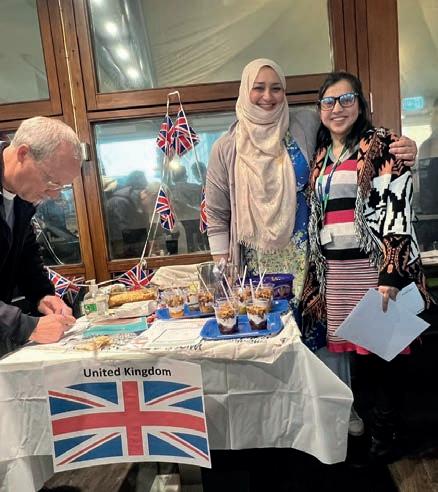

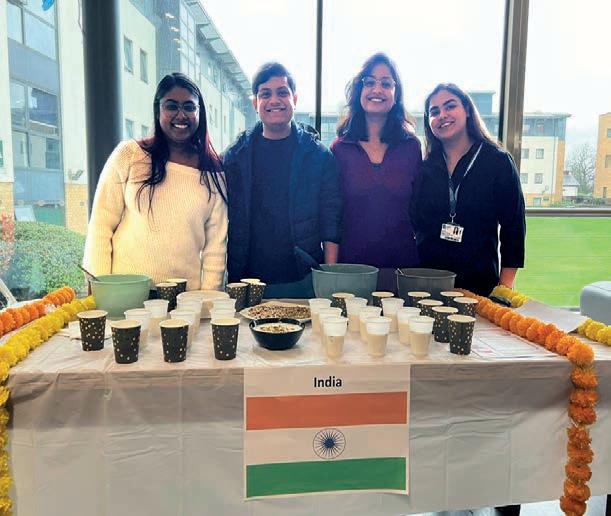
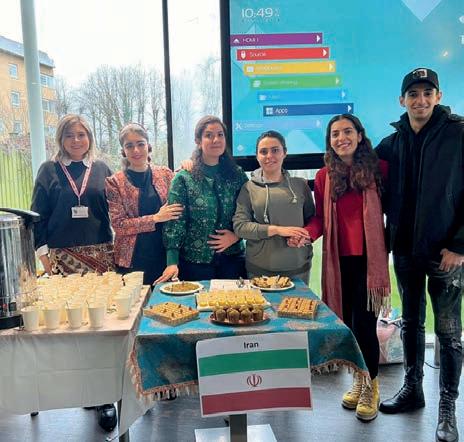
A taste of home. Familiar food and hospitality are also recognised as important by the Southlands College team, here through an International Desserts Festival.
Knowledge exchange also happens at Southlands College events - here a nettle workshop, part of Greenfest
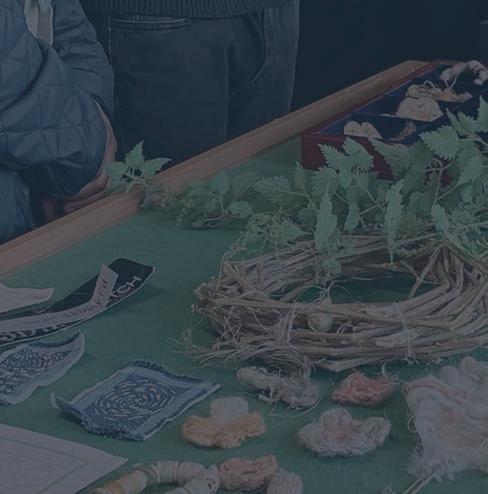
9. Exploring how neurodiverse students can be best supported as they transition to university and throughout their degree
Neurodiverse students such as those with autism or attention deficit hyperactivity disorder may experience greater challenges with transitioning to university and throughout their degree compared to neurotypical students. This project will firstly explore the challenges that neurodiverse students face as they start their degree and as they progress through this, and secondly investigate the factors which may predict successful outcomes in these students. Understanding the challenges these students face and factors that predict student success will inform future strategies and interventions to best support neurodiverse students and their wellbeing, along with improving metrics relating to submissions, continuation, completion, attainment, and progression.
The project aim is to develop a pilot ‘Empowering Abilities’ app to support the unique challenges faced by disabled young people in Offa, Nigeria. Research findings about users’ needs and preferences, uncovered through structured interviews, focus groups and workshops with 65 disabled young people, will be used to inform the development of the Empowering Abilities app. It will thus go beyond generic offerings and provide culturally relevant content and interface; address local language, customs, and preferences; ensure inclusivity for diverse disabilities; connect users to relevant support services and opportunities; and foster a supportive community. Content creation will involve educators, disability advocates, and subject matter experts to develop high-quality, engaging educational materials tailored to the specific needs and learning styles of disabled young people.
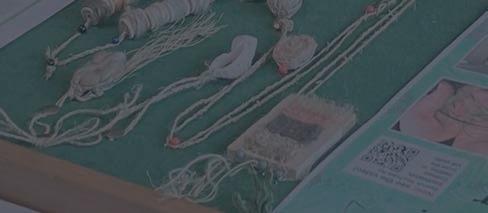
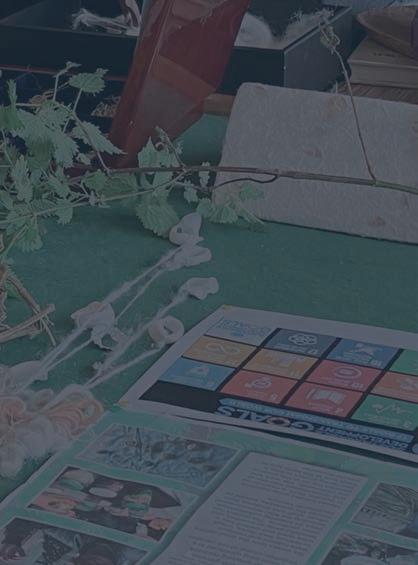

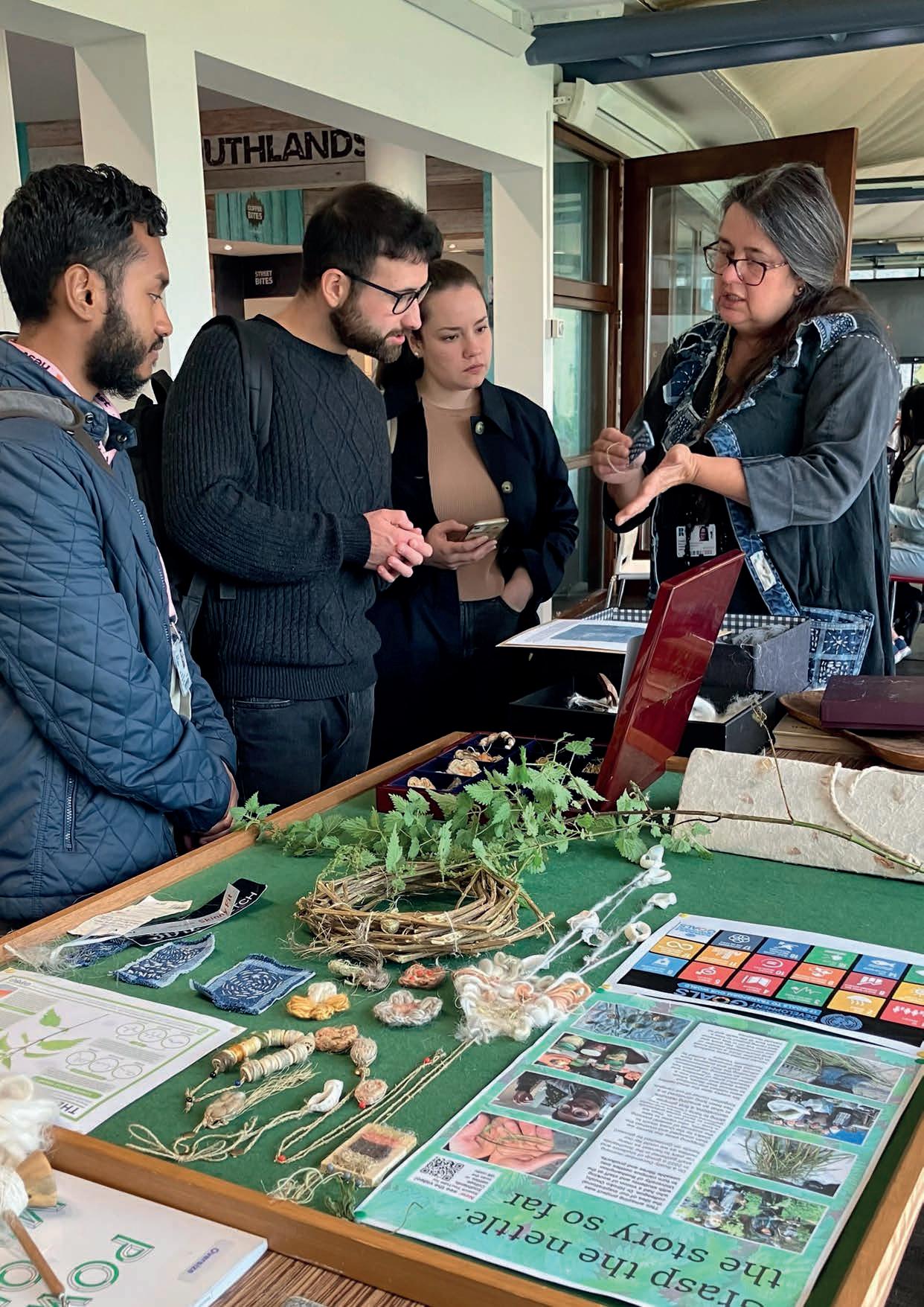
Collaboration between staff at Southlands College, the Susanna Wesley Foundation, the Trustees of Southlands Methodist Trust and academics at Roehampton has led to some longer-term research projects with more significant funding over the last few reporting years.
2023–24 saw the start of a new project around welcoming LGBTQ+ people in churches in Ghana. The work is being conducted by the Centre for Religion and Public Life (CRPLGhana), and it aims to:
◆assess how LGBTQ+ people are currently received in churches in Ghana
◆explore how churches should disciple them
◆ explore the extent to which beliefs are changing about the Bible’s positions on same-sex relationships.
◆equip churches with hermeneutical tools
◆ help churches be inclusive communities by creating safe spaces for LGBTQ+ persons.
A continuing project in the reporting year was ‘Faith Long Lived’. The project, carried out by a research team at the University of Roehampton, has focused on older Christians and their experience of reciting the creeds over the course of several decades. The empirical work was completed early in the last reporting year with a final focus group which included those who had been interviewed earlier in the project. The process of dissemination has involved papers and presentations at various conferences, including one at the University of Tübingen celebrating the 700th anniversary of the Council of Nicaea, and with a potential paper next year at a conference on Nicaea at St Mellitus. A major article on ‘creeds as practice’ is yet to be submitted. Other creative ways of sharing and reflecting on the findings are also being planned.

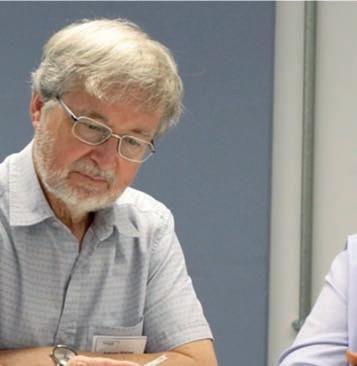

Some research focuses on older people

The Susanna Wesley Foundation (SWF) is a centre for research, dialogue and innovation based at Southlands College, supported by both the Southlands Methodist Trust and the University of Roehampton. The Foundation facilitates research and inquiry that is of benefit to churches but also more widely, with the aim of building flourishing, inclusive communities.
Our values and approach… and our annual conference
Collaboration, participation and conversation are at the heart of SWF’s activities and contributions, seen in the research methods which the Foundation favours, the nature of the resources it produces, and the events which it runs. Crossing disciplines, bringing together those with different experiences and backgrounds, combining academic and practical understandings, and recognising the affective dimension of learning are hallmarks of the Foundation’s approach.
These elements were evident in SWF’s 2024 conference, ‘Challenging Hope’, which brought together contributors and participants from across the globe, and from a wide range of disciplines and walks of life. The day reflected, too, the Foundation’s academic context at the University of Roehampton and the Methodist values on which SWF is founded, with involvement by student leaders and staff from Southlands College. The Conference provided a shared experience of challenging hope through conversation, knowledge exchange, academic learning, creativity and hospitality. The feedback from the day demonstrates something of the approach and its impact:
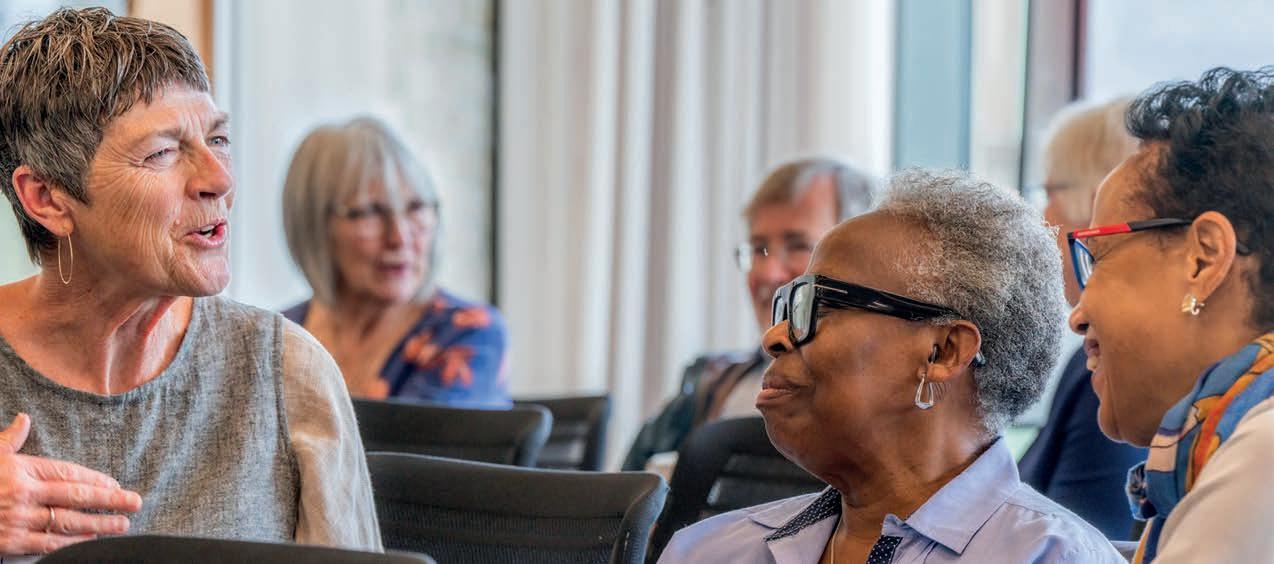
“You curated a powerful and stimulating day with emotional and cerebral provocations. I have much to digest and reflect on.”
“I appreciated the diversity of speakers from around the world, which brought a global dimension to the discussions.”
“creativity…fascinating and engaging speakers…welcoming atmosphere and friendly participants…different perspectives, experiences and methodologies…thought-provoking…breadth of topics truly inspiring.”
“Beautifully organized with excellent speakers/facilitators and a superb design of conference content in keeping with the theme of “Challenging Hope”. Along with everything else, I found myself feeling so much more hopeful, travelling home yesterday, waking up this morning.”

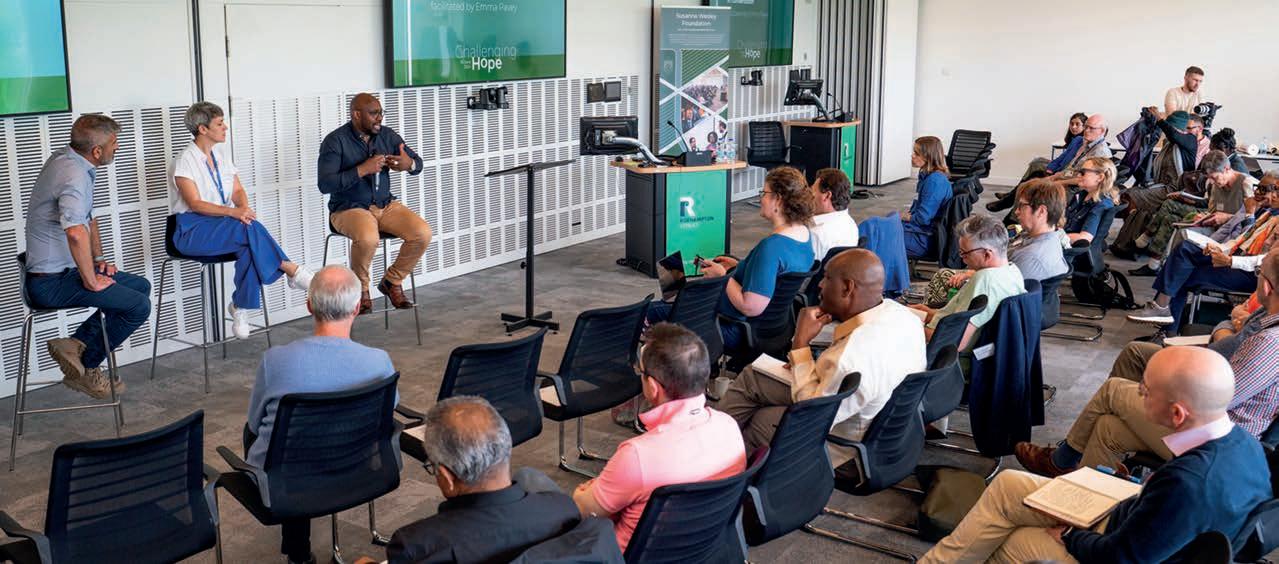
The Foundation continues to sponsor students undertaking PhDs and professional doctorates in theology at the University of Roehampton, some of whom are nearing completion. Current students’ areas of study are as below:
◆Storytelling and culture change in local Methodist churches
◆ Using theological action research to explore new contextual churches as potential catalysts for change in theology and practice
◆ The work of lay employees within British Methodism and its relationship to vocation and calling
◆Poverty and inclusion, theology, and the local church
◆Communion as embodied theatre in the faith formation of teenagers
◆ Embodied Ways to Know God: the spiritual writings of Edith Stein as informing an empathic practice of Disability Theology
The Foundation has been credited by a leader in the university’s theology department as helping ‘to shape a quality theology research culture’ at Roehampton, not only through SWF’s sponsorship of doctoral students but also through its annual conference and other events, its contributions to the department’s practical theology seminar series, and its research projects with Roehampton staff. Further, it is seen as playing ‘a really big role in helping students to be part of an active and vibrant community of theological research.’
The Foundation’s capacity for building community and making connections is evidenced also in its relationships and collaborations with Roehampton academics in other disciplines, and with other bodies and organisations outside the University whose work aligns with SWF’s ambition to influence practice, resource churches, and create flourishing communities. This has led to partnerships with the Saltley Trust, Theos, the Free Churches Group, and the Institute of Leadership and Social Ethics (ILSE) in Leuven, as well as support for academic groupings such as the British and Irish Association for Practical Theology (BIAPT) and the Society for the Study of Christian Ethics (SSCE). The Foundation contributes to bursaries for students from under-represented groups to enable them to participate in the BIAPT and SSCE annual conferences.
SWF also works with individuals to support them as they reflect on their practice and explore possible research activity. This has led to some fascinating work with potential for significant impact, including a potential project around neurodivergence and faith. Work with student leaders to look at values was also part of SWF’s provision during the year.
The Foundation uses its website and periodic newsletters to build community, showcase some of its research, provide a platform for its resources, and offer insights and reflections on SWF themes. The Foundation’s podcasts are particularly important in this respect, a number in 2023–24 continuing our theme of ‘crafting hope’, but also a trio around death and dying. The podcasts open important areas for discussion and offer a true exchange of ideas and perspectives between conversation partners who demonstrate a capacity for listening and learning from one another, sometimes highlighting in the conversation how they will incorporate their new learning into their practice. We also use questions and quotations from the conversations to prompt reflection by our listeners.

The motif of ‘crafting hope’ not only informed the focus of our conference, podcasts, and book reviews on our website, but also ‘Crafting Hope Together’, a new SWF programme in 2023–24. This programme provided a space for those involved in leading church ministry to gather in a small, supportive, ecumenical group of peers to share stories, ideas, resources, and support. Hospitality, opportunities for creativity, and embodied activities were features of the approach, the aim being to enable participants to tune into their thinking and their feelings in different ways so helping them to develop new perspectives on their ministry and all the issues they face. Authenticity, discernment, and relational dynamics were the key themes, with some use of the SWF resource entitled ‘Flourishing Ministers, Flourishing Communities’. An enabling, non-directive, invitational style, and a space in which to share with other participants who could identify with their concerns, was appreciated. A participant described the first of three in-person sessions as:
‘one of the best days of learning I have been on.’
Throughout the life of the Foundation, ‘learning’ has been a recurring theme, and 2023–24 was no different. The year saw the publication of several articles, under the banner of ‘Learning Faith’, in November’s edition of Anvil a journal of theology and mission. These arose out of our large-scale theological action research project around learning in the Methodist Church. The articles highlight the impact of the project on some of those involved in reflecting on the research data, providing examples of how they have changed their approach to the facilitation of learning as a consequence, and the articles offer questions and challenges to those supporting faith development.
Our interest in learning led to support for a project in partnership with Saltley Trust ‘Learning from the edges.’ The Edgy Learning Project is a theological action research project which has sought to reflect with seven groups – organisations or churches who find themselves on the margins perhaps of the institutional church, socioeconomically, or through other factors such as race, disability, sexuality etc. The project is still in progress but working with each of the seven groups with an action research methodology has already resulted in changed practice and renewed understanding for those involved.
The end of the last reporting year saw the start of the project ‘Developing Reflective Learning on Diaconal Identities and Work with Refugees and Asylum Seekers’. The project is still ongoing but there is already much learning about both the potential of the learning process used in the project, and about the substantive topic of Christian engagement with refugees and asylum seekers.
A key driver for the work of the Foundation is to enable the exchange of insights and understandings to ‘make a difference’ and to impact collective and individual practice, for the benefit of communities. Our focus is particularly around churches and those who work in them (and with them), but over the last year we have started to explore both the processes involved in making a difference and methods of assessing impact in various different contexts. We anticipate that learning about impact will not only sharpen how we work and where we direct our resources but will also ensure that more of our work, and that of our academic and institutional partners, has public benefit.
Working with an academic in the University of Roehampton who has recently published a book about a disabled black street performer in Regency London, ‘’Billy Waters is dancing”, is providing examples of how to disseminate insights, create learning resources, and amplify the reach of research and academic work. The book has provided the basis for innovative educational resources aimed at supporting teaching around marginalized peoples, migration, disability, and cultures of poverty and performance. The objective is to decolonise the curriculum, engage and inspire students, and create interdisciplinary resources for the classroom, aims which resonate with some of the Foundation’s interests. The particular focus of the Foundation’s involvement in this project, however, is around how to evaluate the extent to which the various resources and activities which have been developed out of the original research on Billy Waters’ life and times have influenced perceptions, attitudes and behaviours, and changed practice. In this way, too, we are contributing to the University of Roehampton’s Research and Knowledge Exchange agenda.
Research work with a university’s chaplaincy team has had a similar focus, exploring how to determine impact in a higher education setting. The project uncovered different perspectives on assessing impact and explored how to do so with integrity, given the nature of chaplaincy and its spiritual impetus. The research has led to the publication of two papers in the Journal of Pastoral Care and Counselling, and a reflective practice and evaluation resource, which is being tested in various contexts. A presentation at the World Methodist Council in Gothenburg in August also drew on the chaplaincy research project.
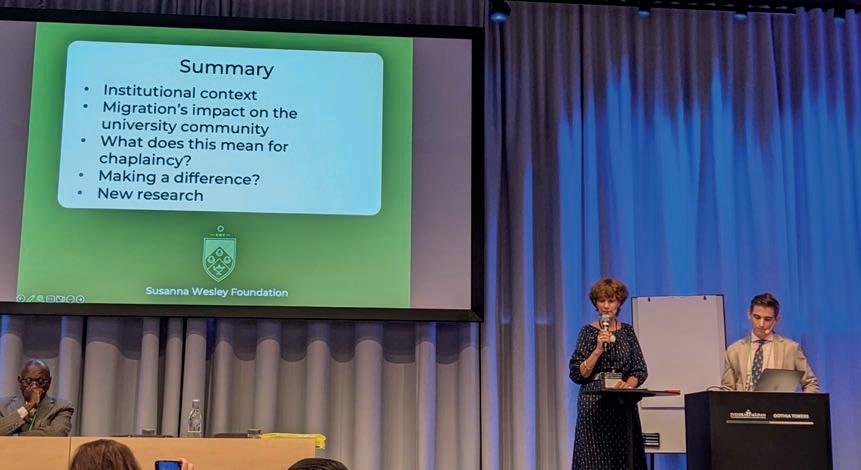
The Foundation’s work with the Methodist Church around diversity and inclusion has featured in many previous reviews. This work continued in 2023–24, with further consideration of an earlier SWF report evaluating awareness and perceptions of the Methodist Church’s strategy to bring about a fully inclusive Church – the strategy known as ‘Justice, Dignity and Solidarity’ (JDS). A day’s meeting with the Church’s JDS Committee allowed a considered approach to the report with the findings being seen as a tool for constructive challenge and improvement. The subsequent submission from the JDS Committee to the April meeting of the Methodist Council identified action arising out of this meeting: ‘following the publication of the [evaluation] report and the response from the JDS Committee, a small working group has been convened to produce worship material for circuit and local churches underpinning the principles of the JDS strategy and the Justice-Seeking Church.’
The Foundation was also asked by the Connexional Team to design and conduct a study of Fellowship groups and language congregations that worship across the Methodist Church in Britain. At its heart the project aimed to:
◆ develop an understanding of the Methodist Church in Britain’s ethnic, cultural, and linguistic diversity
◆ deepen our collective engagement with the gifts and challenges wrought by migration
◆illuminate the lived experience of worship and ministry across the Connexion.
The report was submitted at the end of the reporting year, but it is anticipated that there will be further conversations with the Church and possible future research.
The Susanna Wesley Foundation is always alert to work around the creation of inclusive and flourishing communities, and is proactive in supporting and promoting associated activity – hence its publication of the resource ‘Diversity, Otherness and Privilege’ in 2020 (online at susannawesleyfoundation.org under ‘our work’, ‘practical resources’ and ‘toolkits’, as well in hard copy). Since its initial publication, 1350 booklets have been sent out by the Foundation, and we continue to receive requests from groups and churches of all denominations.
• When have you felt that others had unearned privilege that you did not have? How did you feel?
• When have you experienced privilege – an awareness that your advantage was due to a characteristic that society favours, rather than having been earned?
• How does the notion of privilege emerge in your faith tradition or worldview, both in its history and its ideas? How does it intersect with ideas about grace, or notions of superiority?
Sample questions from the Diversity, Otherness and Privilege resource
The Susanna Wesley Foundation will continue to take an approach which encourages dialogue and collaboration, and which draws on different disciplines, on lay as well as ordained perspectives, and on practitioner as well as academic insights. The desire to influence practice, and to share understandings for the benefit of churches and communities, will provide impetus for further work around impact over the coming year, supporting the university’s research and knowledge exchange agenda and helping to extend the reach of the Foundation’s different activities and involvements.
SWF will continue to support the university’s work in practical theology, to sponsor doctoral students, and to contribute to the research and evaluation of various aspects of the Methodist Church’s policies and practices, including the implementation of the Church’s strategy for equality, diversity and inclusion, and new work around online communion. Various projects reported here will continue in 2024–25, with a focus on the analysis and dissemination of research findings, and the theme of ‘hope’ will continue to feature. A review of projects undertaken over the last decade will contribute to an event in Spring 2025 when we will bring together those from disparate disciplines and interests to demonstrate the range of our work and to effect some new connections and collaborations. The Foundation will also take part in the Methodist Connexional consultation on the future of training needs and delivery within the Methodist Church, reporting initially to Conference 2025.
During 2024–25 the Southlands Methodist Trust will undertake a full review of its structure and grow its work, and this will be reflected in greater resources available to develop the work of the Susanna Wesley Foundation, both on campus and in external research support.

The SMT and Southlands College work collaboratively to deliver projects and events that aim to improve the student and staff experience at the University of Roehampton. The focus of this work is to deliver developmental initiatives in ways that demonstrate Methodist values and ethos, and their influence throughout the history of the college, continuing to maintain a prosperous relationship between the Methodist Church, the college and the University of Roehampton.
Throughout the 2023–24 academic year, as well as enhancing an event programme that creates learning opportunities that encourage the exploration of values, identity and how they impact future goals, the college has also erected on-campus installations such as the Peace Pole and Southlands Meadow that reflect our values and the diversity of our community, which help to achieve the university’s enabling strategies.
Southlands College uses a student-centric, collaborative approach to these projects and events, working with student leaders, academic departments, external partners, the chaplaincy team, sister colleges, and other university departments. Our aim is to develop novel initiatives that offer something unique, developmental and interesting outside of the classroom, providing opportunities for staff and students to learn from each other, sharing knowledge about topics such as culture, society, language and history. Southlands College was founded by the SMT as a teacher training institution, and student leaders have been a key driver in continuing the tradition of education at Southlands with peer-to-peer learning and sharing of culture that has helped to create events that allow students to consider their own values and those of the college.

Building on the introduction of the Student Leadership Certificate in the 2022–23 academic year, the college team worked in partnership with current student leaders to progress the programme further in three key areas: (1) expanding the certificate’s cohort to include all student leaders at Southlands College; (2) increasing the variety and quality of monthly training sessions, such as the Exploring Values session, delivered by the Director of the Susanna Wesley Foundation and the College Chaplain; (3) providing resources through mediums that suit different types of learner and creating a new virtual learning environment.
Upon completion of the required modules, students receive a certificate of completion from the university’s Department of Continued Education, and there are plans to expand the course to our sister colleges at the university for the 2024–25 academic year and to develop it into an accredited course for all student leaders at the University of Roehampton in 2025–2026.
Additional coaching, training and mentoring for student leaders has a direct impact on graduate outcomes, and evidence has been gathered of graduate outcomes. A study of 61 Southlands student leaders shows:
◆ Significantly higher levels of course completion than for the average Roehampton student (92% compared with 81%)
◆ Among leavers, 97% of student leaders had achieved graduate-level careers after 15 months, compared with a UoR average of 68%
The college continues to design initiatives that provide hospitality and encourage members of our community to be as kind as possible, to as many people as they can, with the aim of continuing to develop a supportive learning environment that adapts to a changing student body and Higher Education sector, enriching the staff and student experience for all. In order to achieve these goals, it has six broad areas where it focuses its activities:
◆Offering welcome, hospitality and belonging within an inclusive environment
◆ Engaging our community in critical issues facing society and encouraging individuals to explore their own values and identity
◆ Developing students as ethical leaders, enhancing their skills, nurturing success and celebrating achievement
◆ Influencing whole-university identity and activity in ways which advance the college’s values and mission.
The SMT provides specific financial support for activities that help to achieve these aims. It also offers staff support to the college team and student leaders, supporting with the planning, delivery and evaluation of college initiatives that benefit the college and wider university community.
In 2023–24, the college delivered or supported 105 events with a total attendance of 6,889. 45 of these events were organised and led by student leaders (College Community Leaders (CCLs), Residential Community Leaders (RCLs) and College Presidents), and the CCL team also supported 30 university events. As well as being able to run a highly commendable number of events, using student leaders also increases the quality of events, as they are better placed to tailor events to the needs and wants of our student body. This is evidenced by an increase of 29% in our average attendance for events this academic year. Some key highlights of our initiatives supported this year by the SMT included the following:
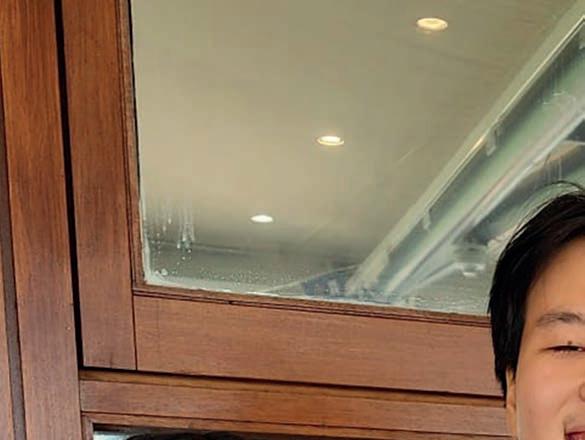



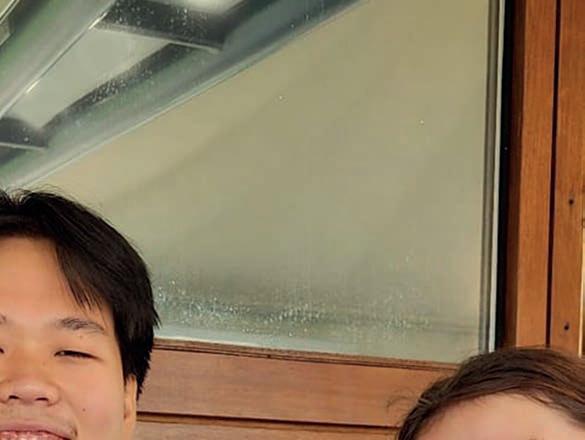



◆ In a symbolic gesture that resonates with the spirit of unity and peace, Southlands College welcomed a new addition to its grounds in November 2023: a Peace Pole. There are estimated to be over 250,000 Peace Poles across the world. Southlands College is proud to join this global movement, bringing the essence of peace to our campus.

◆ A collaborative approach to working with academic colleagues in the Faculty of Business and Law enabled initiatives that support our students in developing their employability skills such as Employability Week, Assessment Support Fair, PartTime Jobs Fair and LinkedIn Workshops. Our efforts in sustainability were marked by student-led workshops on eco-friendly practices, including nettle crafting and nature walks, which encouraged environmental thinking. Southlands hosted a very successful Greenfest organised by its student leaders that brought sustainability experts to campus to share and exchange their knowledge. The introduction of environmentally conscious catering options, such as increased vegetarian and vegan choices, further aligned with our sustainability goals and inclusivity efforts. Southlands Meadow was grown to demonstrate the commitment of the college to the environment by providing a rewilded on-campus habitat for a variety of wildlife.
◆ Themed and cultural events like Holi, American Fall, Burns Night, Nowruz, the International Dessert Festival, Paint & Snack, and International Mother Language Day. Feedback from students indicates that 80% of the students feel like our events make them feel like a part of an international community and 65% of students indicated our events give them a sense of belonging and make them more comfortable socialising with their peers. By continuously adapting our approach to meet diverse cultural, personal, and religious needs, Southlands College continues to foster a rich and supportive learning environment.
◆ To enhance the social and educational experience at the college, the London Life initiative was introduced. This social language learning programme involved student-led trips to London’s cultural landmarks, such as the Tate Modern art gallery, Central London Christmas Lights, and the London Wetland Centre.
◆ The development of a student radio station with a mix of 17 different eclectic weekly shows led by students was introduced through the CCL programme in collaboration with Roehampton Students’ Union. The radio station offered a chance for students to develop skills in broadcasting, production and design, as well as helping to boost their confidence. Resources for establishing the station were supported with funding from SMT.
The SMT continues to encourage academic excellence, celebrate student success, and support access to education by awarding a number of prizes to staff and students.
It places a particular emphasis on ensuring the range of prizes given celebrate the history and ethos of the college, ensuring recognition for both individual achievement and creative endeavours that promote the Methodist identity of Southlands College. In the 2023–24 academic year it was decided to increase the number of prizes given to students by creating both undergraduate and postgraduate winners for two of the categories: the Excellent Achievement Overall award, and the Wider Contribution and Engagement award.
These awards include a number of named prizes:
◆ The Susanna Wesley Award is given to a female member of staff who promotes a values-focused approach in their work to achieve outstanding performance in educational leadership at Southlands.
◆ The Charles Wesley Award is given to a student or member of staff who has contributed in an exceptional way to the development of community music at the college.
◆ The John Wesley Award is given to a student who has made a particularly notable contribution to the student chapel community.
As part of its commitment to support students to access education, Southlands Methodist Trust 150th Anniversary Scholarship and Bursary funding continued to be awarded. Funding at key moments allows students to progress and succeed in their studies. The panel, chaired by a Trustee, met to consider applications in July 2023, awarding £11,150 directly to students.
In addition, the Wesley’s Chapel Emergency Fund awarded £2,000 to students facing urgent financial crises.
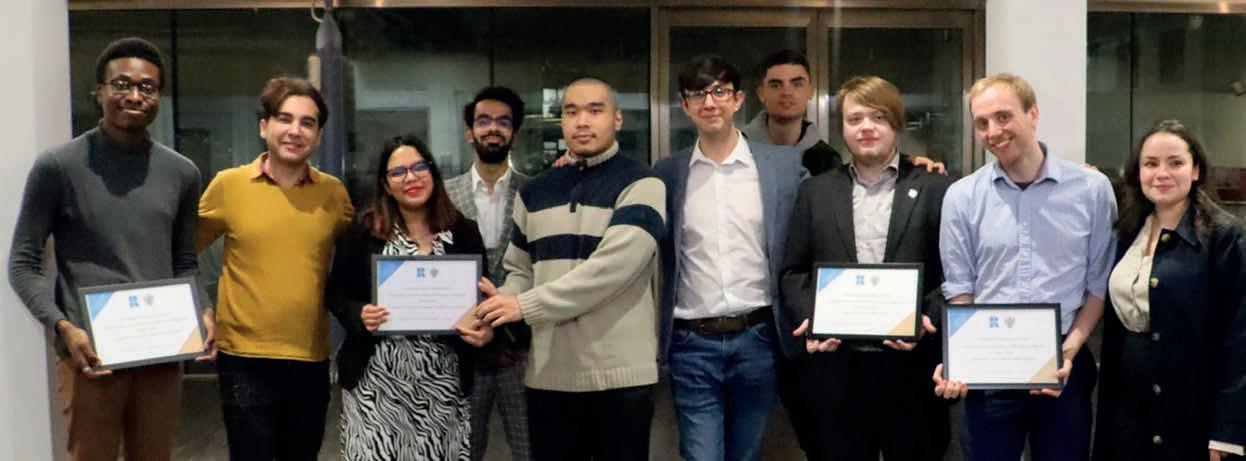
Important to the development of a meaningful college community is the work done at Southlands to sustain relationships with former college members.

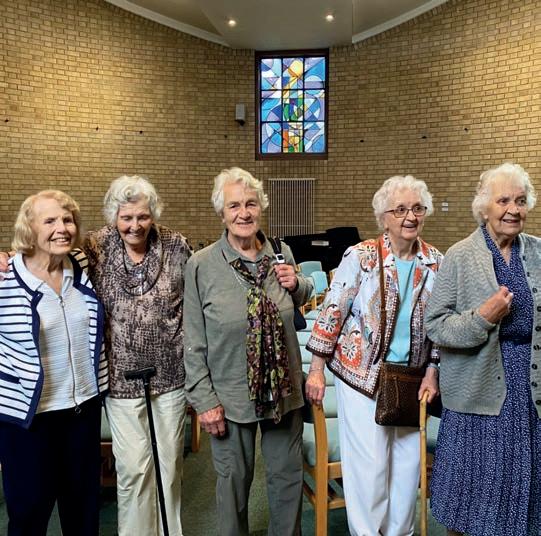

Staff and students at Southlands collaborate closely with trustees and staff of the Southlands Methodist Trust to shape opportunities to enrich our community by engaging with this dispersed community. The SMT provides ongoing support for driving this work by funding the Archives Historian, whose responsibilities include engagement with our alumni communities.
The focus of our communication with the college alumni is through the Southlander – our annual magazine. Supported by the Trust, this magazine includes news from the college and university, reminiscences from alumni and stories drawn from the archive. In the ‘In Memoriam’ section, friends and family share memories of alumni that have passed away. The Southlander was reintroduced in 2016; this year is the first time we have seen a net increase in requests to join the mailing list, which currently stands at 954 including College Fellows and Trustees. The oldest recipient is 110 – Margery Hodnett, Southlands College 1932–1934.
In September we hosted a reunion for five alumnae who attended Southlands College from 1952 to 1954; celebrating 70 years since leaving college. They are now all 90 – one had travelled from Canada just for the reunion. A short campus tour focused on the Chapel and the Library. As practising Methodists, they appreciated the simplicity and atmosphere of the Chapel. They were very impressed by the Library and enjoyed chatting to staff and students.
Special visits were made to Vera Schaufeld, a former student and Honorary Doctor of the university and to Freda Smith, Southlands College 1936–1938. Freda’s oral history was recorded for the college archive.
Southlands is home to a College Chaplain and Muslim Chaplain who serve the Southlands College community and encourage a supportive environment where individuals can flourish. They also work collaboratively as part of a wider multi-faith team across the University who in turn relate closely with the college team.
The SMT provides funding and support to enable the chaplains to receive training and acquire resources to help their work flourish. It also supports additional staffing for the chaplaincy, and in 2023–24 this included the appointment of a Creative Partner. The Southlands Creative Partnership focused work on four projects in the life of the college. These were:
◆ The Sharing Space project: developing a range of new resources exploring what it means to share space with each other, in all our uniqueness and diversity, and to promote a positive curiosity about ourselves and those we meet.
◆ Supporting the development of creative ecumenical liturgical resources to support Chaplaincy outreach throughout the year.
◆Creating and editing resources related to the vocation of Education
◆ Developing a strategy for inclusive creative arts at The Well, with some creative management of the exhibitions and concerts that this strategy encompasses.
As part of all these projects work will be done to share the resources and events we create, within the university, within the Methodist Connexion, and further afield.
The SMT has committed to funding the Creative Partner for a further year to continue and expand this programme of work in the future.
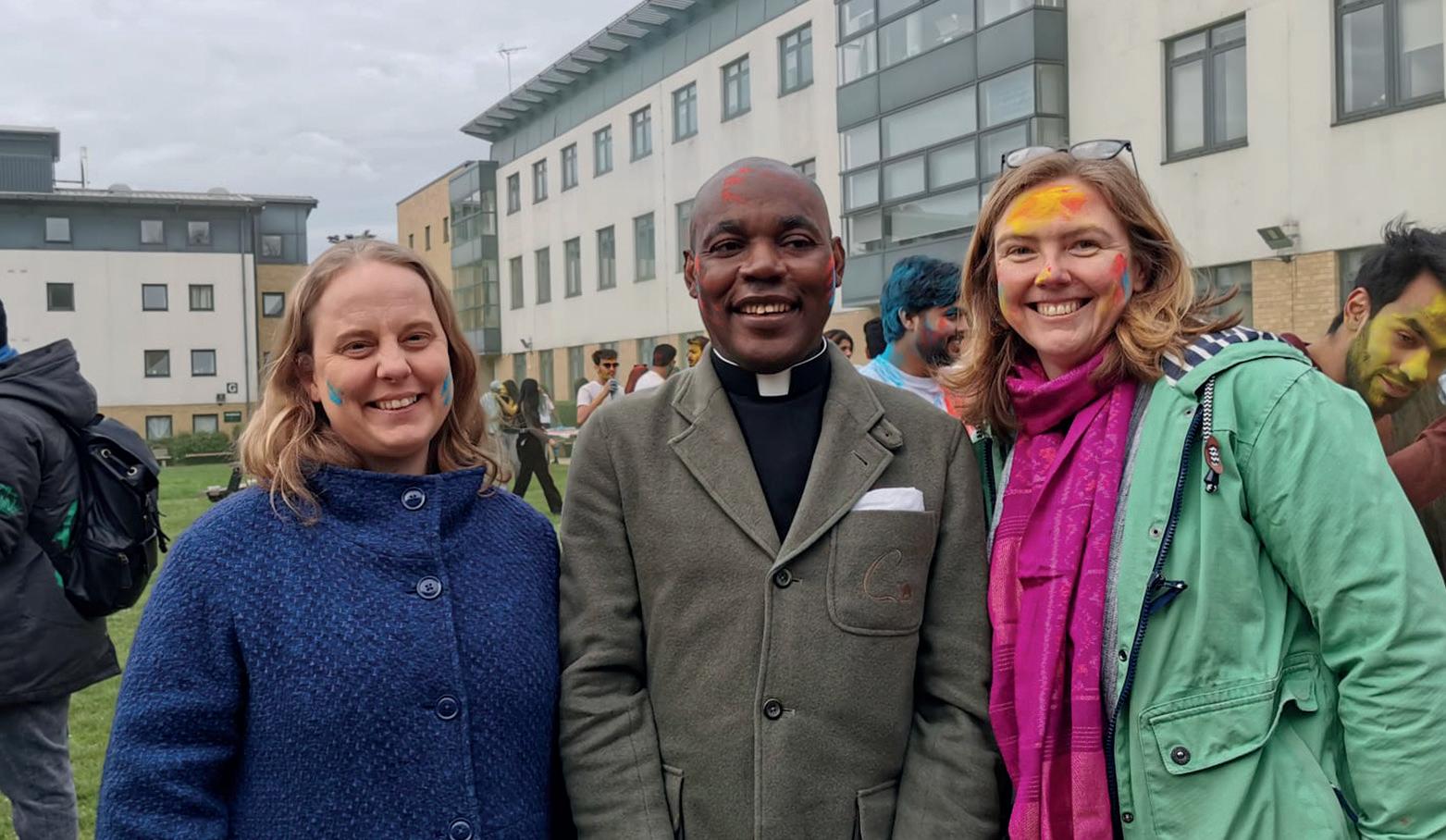
The Southlands Methodist Trust employs an Archives Historian to oversee and develop the college’s historic archive, with the support of the university through the provision of suitable space and access.
Significant progress has been made on the sorting and cataloguing of the vast quantity of unmarked supplementary material held in the archive. Where appropriate, material has been returned to the relevant archives in the university, multiple copies have been disposed of and damaged items protected. The recently collated newspaper archive will be digitised by the University Library Reprographic department and held as a joint digital resource with the originals being retained in the Southlands archive. All this work has ensured that the resources of the archive are better known and made more available to students and researchers both within and outside the university. This work is ongoing.
As a result of collaboration between the four college archivists at Roehampton, library services now publish a regular blog, ‘Snapshot from the Archives’ which explores the history of the colleges within the context of historical events. This can be found online at: https://library.roehampton.ac.uk/archives/blog
We continue actively to seek out material that is missing from the archive, including oral histories. A recent addition to the Oral History collection is Freda Smith’s recollections of her time at college and subsequent long career in teaching. Freda attended Southlands College from 1936 to 1938 and is now 106 – she clearly remembers seeing Fred Perry play at the at the All England Lawn Tennis Championships when she was a student at Southlands College, Wimbledon!
Plans for next year include a special exhibition in the college chapel, featuring portraits of women from the history of Southlands and Roehampton.
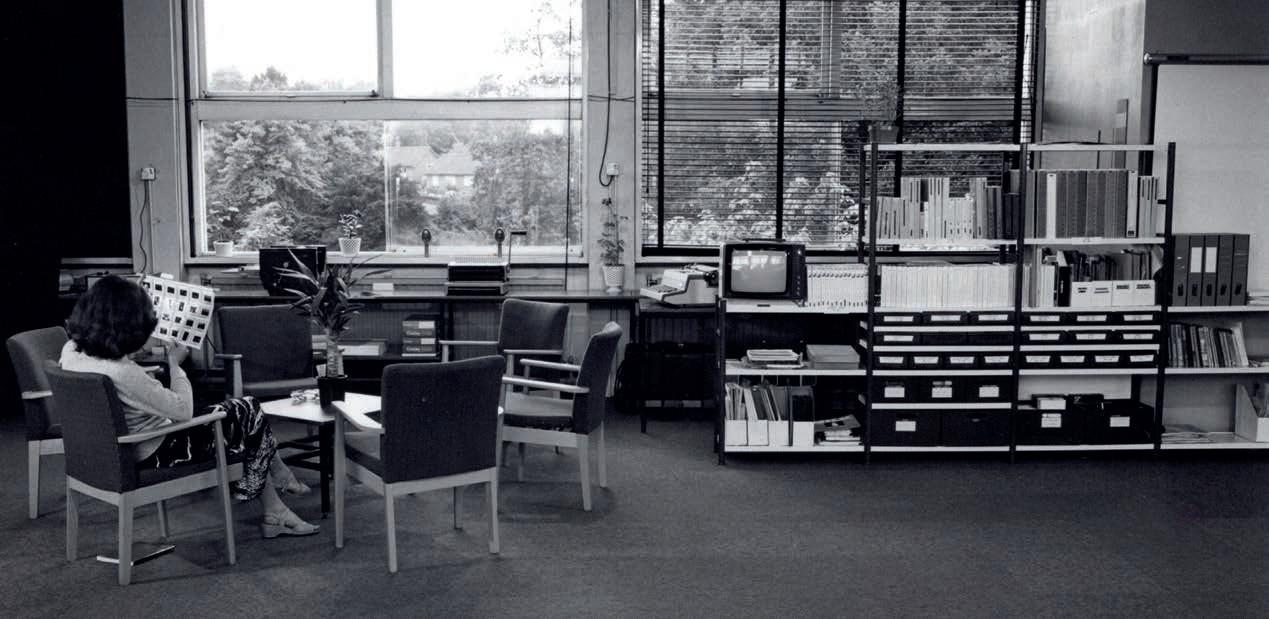
A decade of focused work, supported by the SMT, has brought Southlands College centre-stage within the national and global organisations and networks which lead Methodist Education at all levels. The college has come to take a leadership role in shaping a broad programme of activity with real meaning and impact across a network of over 1,000 institutions, in over 80 countries, serving close to 2 million students.
Moving into this position has benefitted Southlands College, the University of Roehampton more broadly, and also served the mission of the Southlands Methodist Trust, which offers support for staff to participate in network activities and to attend conferences, as well as to enable Southlands to host major gatherings at Roehampton.
By collaborating with partner institutions, we create opportunities for attracting students, nurturing student exchange and study abroad programmes, discern opportunities for research and knowledge exchange partnerships, generate interest in the academic life of our institution, and drive forward the Methodist Church’s goals for education as a means for transforming lives – and the world – for the better.
2023–24 saw new and important developments and enhancements in the college’s work with and across our UK and global networks – developments which were made possible by the hard work of our staff teams and the active support of SMT trustees.

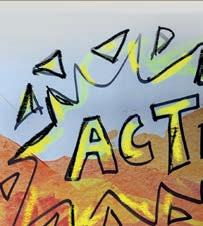




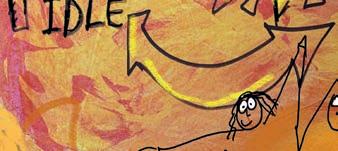
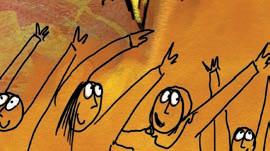
Southlands worked throughout the year to support the agenda of the Methodist Church in Britain to nurture and develop its mission in Methodist Schools, which focuses on the education strategy, Transforming Lives.
Southlands College and the University of Roehampton continued to support strands of this strategy, working with the Methodist Schools Committee (on which the Head of College sits) to explore and enhance the ways by which the Church can nurture teacher education as a Christian vocation. To support this vision, the SMT released funds for scholarships that support Roehampton students training to be teachers, and to work in educational roles. The Southlands Teaching Scholarships and Southlands Anniversary Scholarships (Education) represent a major investment in supporting those especially from less privileged backgrounds to pursue teaching vocations.
Alongside this, work was done to formulate a research and knowledge exchange programme which might answer the Transforming Lives strategy’s call for learning more about (and enhancing) the impact of Methodist values and approaches to the quality of education in schools. Collaborative activity with the Methodist Schools Committee and the Methodist Independent Schools Trust led to proposals for a programme of work to enhance a research-led teaching sector, and work to implement action in this area will be pursued in the year ahead.
The Head of College continues to act as a trustee of Methodist Schools (MAST) – the Religious Authority with regard to all Methodist state schools, which has responsibility for overseeing quality in schools and matters of governance, admissions, and relationships with statutory bodies. During this year, the SMT has continued also to provide a significant grant to Methodist Schools. This enables MAST to sustain a leadership staff team which manages the practical implementation of the trustee body’s responsibilities and decisions. Their work has included significant development of the Church’s academisation programme in response to changing government policies.




Southlands continues to build up positive connections with and between the various Methodist institutions of Further and Higher Education in Britain and Ireland.
Having founded the BIREN network, which brings together the Heads/lead staff of all such institutions (including important historic archives and museums) in 2020, Southlands brought together this group, offering leadership (the SMT Chair as Chairperson), facilitation (through financial support and administrative provision), and hospitality (hosting the group) at its gathering. In 2023, the Head of College has worked collaboratively with members of the Connexional Team to support the BIREN group to meet at Oxford Brookes’ Centre for Methodism and Church History (one of the member institutions). The SMT will provide continued support of staff and resources for these gatherings.
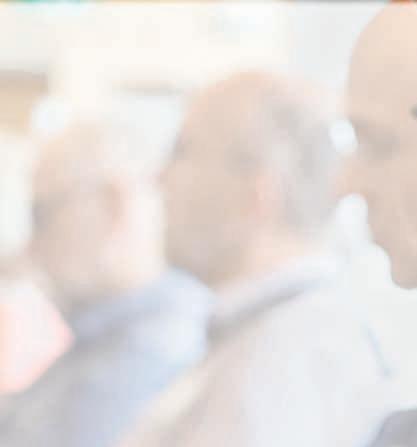
The college’s Archives Historian – a position funded by the SMT and working with the Head of College – has ensured a far greater reach across Methodist educational networks for its historic archive, developing a closer working relationship with other institutions’ archivists and ensuring both collaboration and acquisition arrangements which serve the common goal of promoting Methodist archives throughout Britain for educational use.




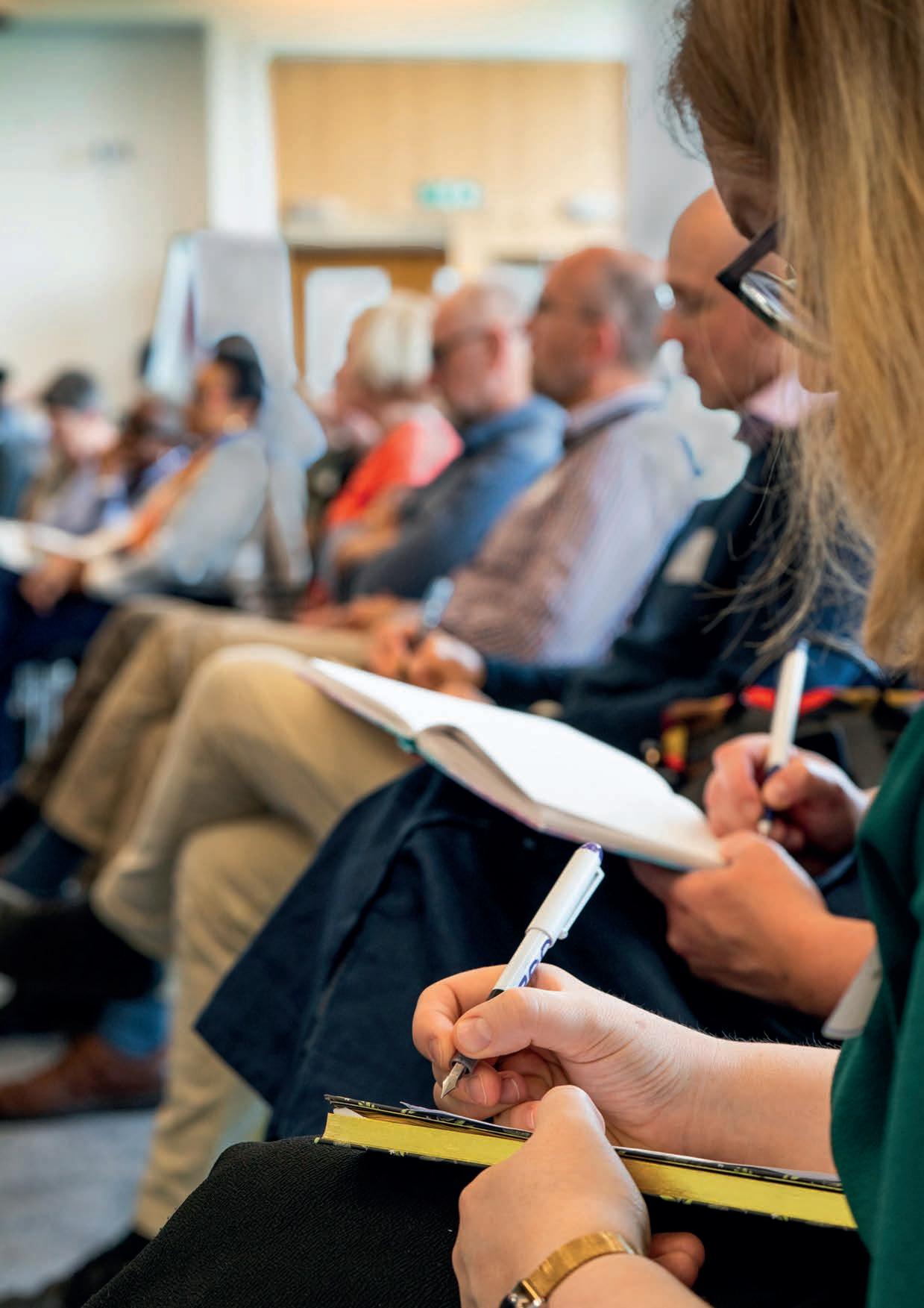
Southlands continued to take a prominent role amongst global networks of Methodist Education during 2023–24.
The Head of College was active in engaging with both the Methodist-related Theological Schools in Europe (MTSE) and the International Association of Methodist-related Schools, Colleges and Universities (IAMSCU). He represented the college at a MTSE gathering in January 2024, where new research and mutual interests were discussed across institutions, and where decisions about a future, larger meeting in Prague were made for 2025 – which will be a student and staff gathering.
Having participated on the leadership team for the planning of the IAMSCU global meeting in 2023, the Head of College led a review process for the IAMSCU Board of Directors with the goal of enhancing future events. This emphasised the significance of the gathering a Roehampton for building a common identity across Methodist institutions, for enhancing collaboration, and for supporting the work of each.
Various members of the Southlands team contributed to the planning and delivery of sessions at two important meetings in Sweden, in the summer of 2024. The IAMSCU two-day conference, Community, Conciliation, and Connectionalism: Methodist Education in Scandinavia and Around the World, took place in Gothenburg prior to the World Methodist Conference gathering, On the Move, and the Head of College and Director of the Susanna Wesley Foundation led sessions, either as Chair, or in the presentation of research being done at Roehampton. The Head of College has subsequently been coopted onto the Education Committee of the World Methodist Council, which will lead work for global Methodism as that body looks to the planning of the next World Methodist Conference.
During the year, the Head of College as Vice President of IAMSCU was also appointed as chairperson of the strategic committee on institutional collaborations, the work of which began in Sweden. Plans were made to enhance the collaborative ventures across the network, ranging from the possibility of new publication projects and research partnerships through to the possibility of a new chaplaincy-focused network.
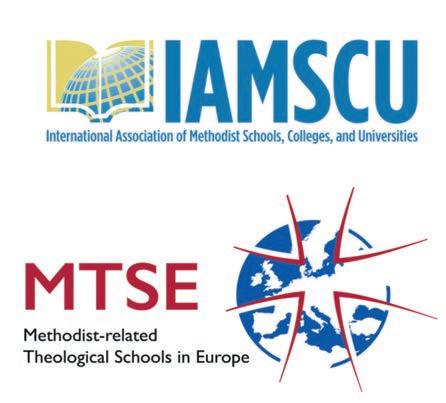
The Southlands Methodist Trust is a charity of the Methodist Church in Britain.
Registered charity number 1100660
Southlands College 80 Roehampton Lane
London SW14 5SL
SWF@roehampton.ac.uk
southlandsmethodisttrust.org.uk 020 8392 4462


SusannaWesleyFoundation
susannawesleyfoundation1483
susanna-wesley-foundation


SouthlandsCollegeUR
southlandscollege5798
roe_southlands